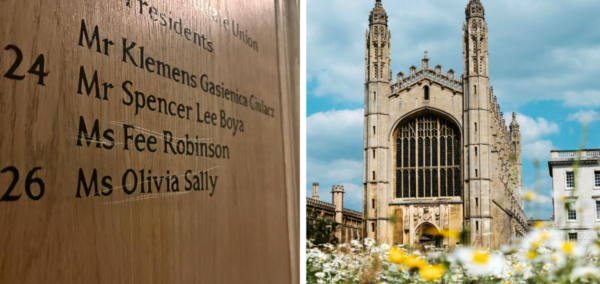
Imperial College London academics found to be linked to Chinese military institutions
Researchers co-authored at least five studies with scientists linked to the Chinese People’s Army
Imperial College London academics worked alongside researchers from institutions linked to the Chinese military, a new report has found.
In a recent article by the The Financial Times, experts at Imperial were reported to have co-authored at least five studies with potential military applications.
The collaborations involve a range of topics, including the material limits of advanced high-strength steel supplied to the Chinese military, high-powered batteries with applications in both civil and military domains, and the strengthening of a titanium alloy widely used in aerospace.
One study involved a researcher from the Shougang Research Institute of Technology, a supplier of steel to the Chinese military. It examined the limits of advanced high-strength steel for both civilian and military uses.
In another instance, a senior lecturer from Imperial participated in a study on high-powered batteries with a researcher from China’s Army Military Transportation University. A third study saw an Imperial researcher cited as a co-author alongside a member of a Chinese defence company in a study on strengthening a titanium alloy with military applications.
Trevor Taylor, director of the Defence, Industries and Society programme at the Royal United Services Institute, said the research identified by the FT was not on topics “publicly noted by western states as key for future military advances”, such as AI, directed energy weapons and hypersonics.
However, he added that the topics of the papers would nonetheless “be of some interest for some areas of military developers” as potential components in larger defence systems.
Imperial College defended its research and cited its procedures for assessing the ethics of work with China.
A spokesperson said: “Partnerships and collaborations at Imperial are subject to due diligence and are regularly reviewed, and clear research codes of practice apply to all staff at Imperial.”
The university also reaffirmed its commitment to national security and stated that its research is not classified.
It said: “We regularly review our policies in line with evolving government guidance and legislation, working closely with the appropriate government departments, and in line with our commitments to UK national security.”
However, critics argue that while the research may fall under the category of basic scientific inquiry, it could contribute to advancements in defence technologies, raising questions about the oversight of academic partnerships with potential military ramifications.
The Chinese embassy in London dismissed criticisms of joint UK-China research as unfounded, emphasising the mutual benefits of academic exchanges and cooperation.
An embassy spokesperson said: “Exchanges and co-operation between Chinese and British universities and scientific research institutions are mutually beneficial.”
They also warned against “overstretching the concept of national security and politicising and instrumentalising trade and tech issues”.
This is not the first time Imperial has faced criticism for alleged ties to the Chinese military, closing four research labs in 2022 over links to Beijing’s defense sector.
An Imperial College London spokesperson said:
“We regularly review our policies in line with evolving government guidance and legislation, working closely with the appropriate Government departments, and in line with our commitments to UK national security. Partnerships and collaborations at Imperial are subject to due diligence and are regularly reviewed, and clear research codes of practice apply to all staff at Imperial. Imperial’s research is open and routinely published in leading international journals and we conduct no classified research.”
Related articles recommended by this author:
• UCL lecturer banned from teaching course on China to protect uni’s ‘commercial interests’
• Imperial student blackmailed by security guard over girlfriend living in halls with him
• Imperial College revealed as second largest beneficiary of fossil fuel funding among UK universities


















